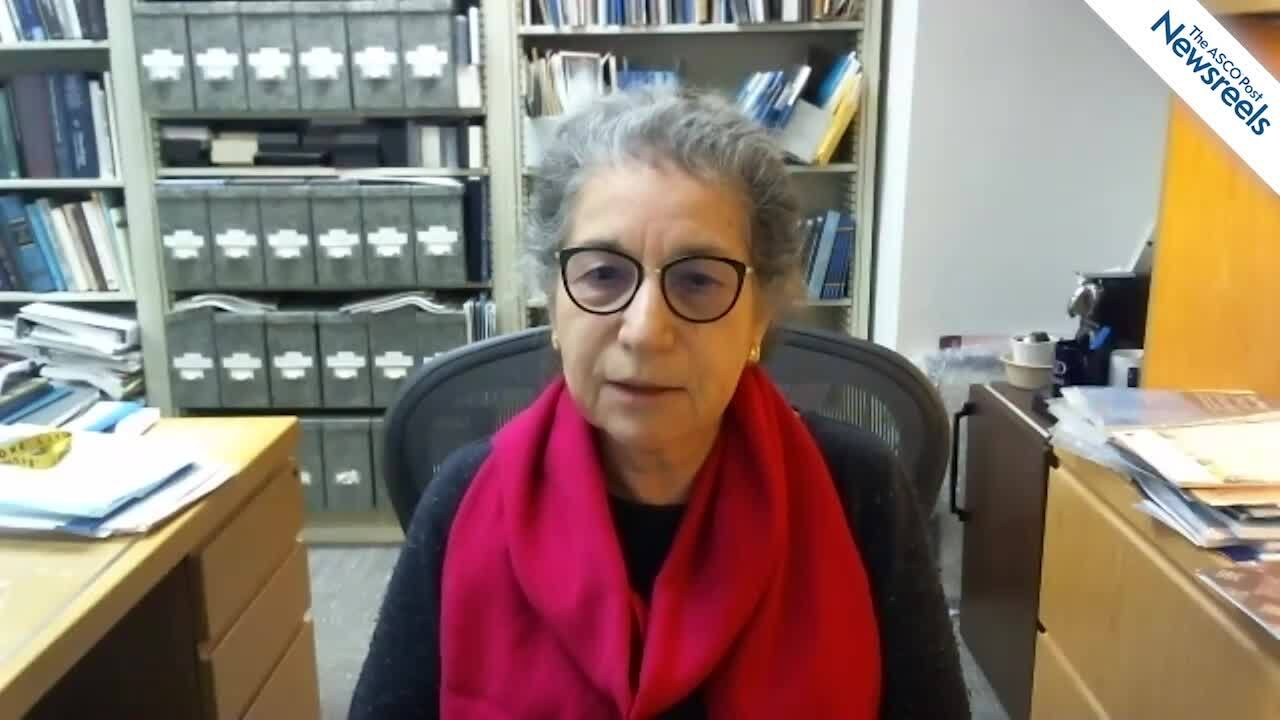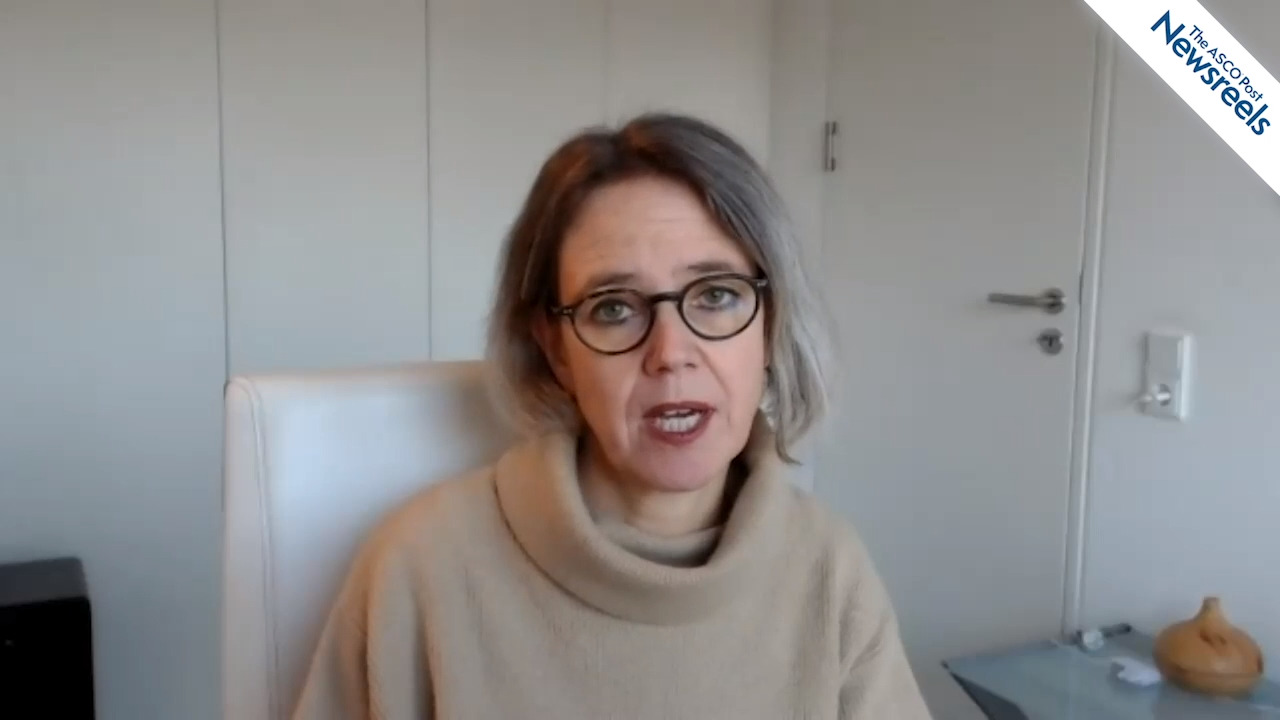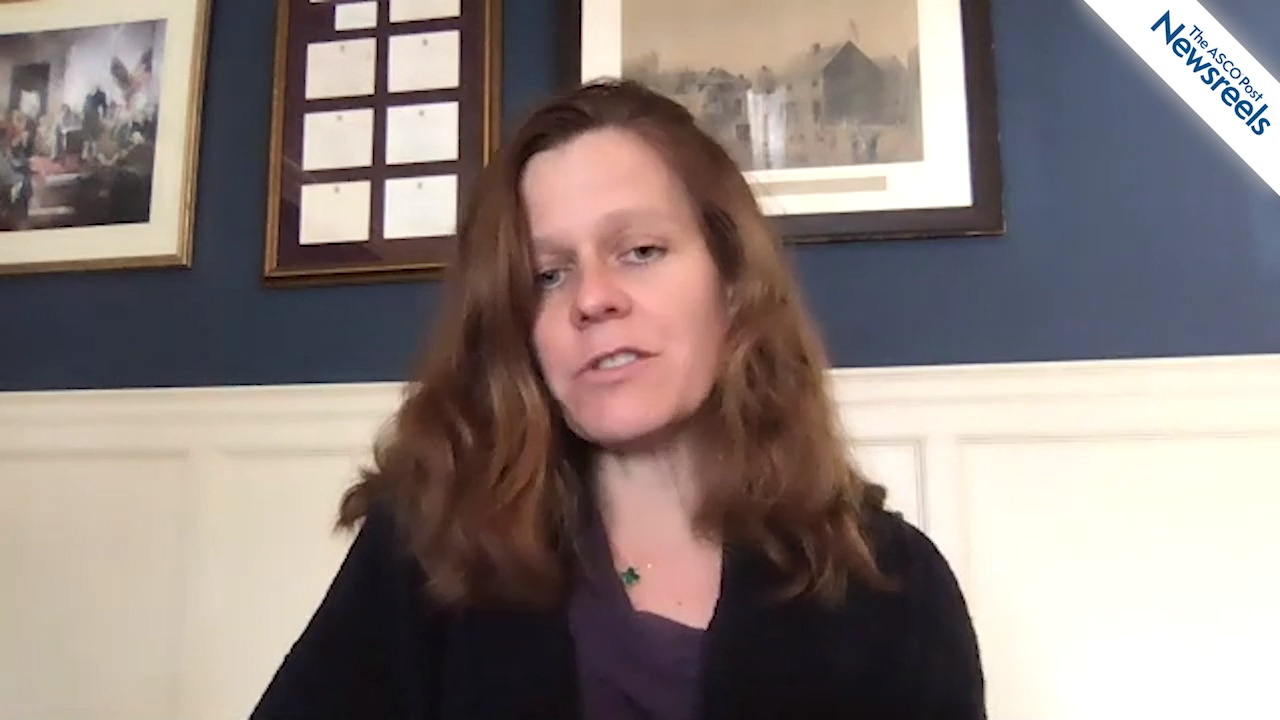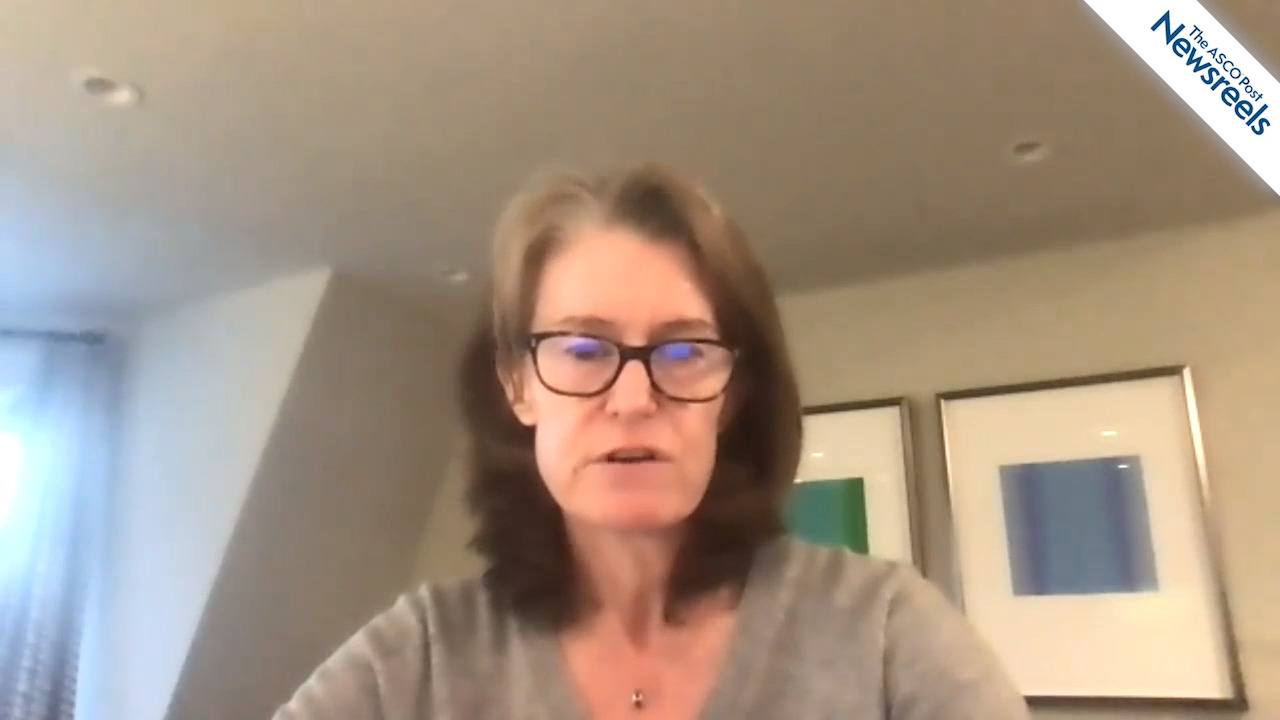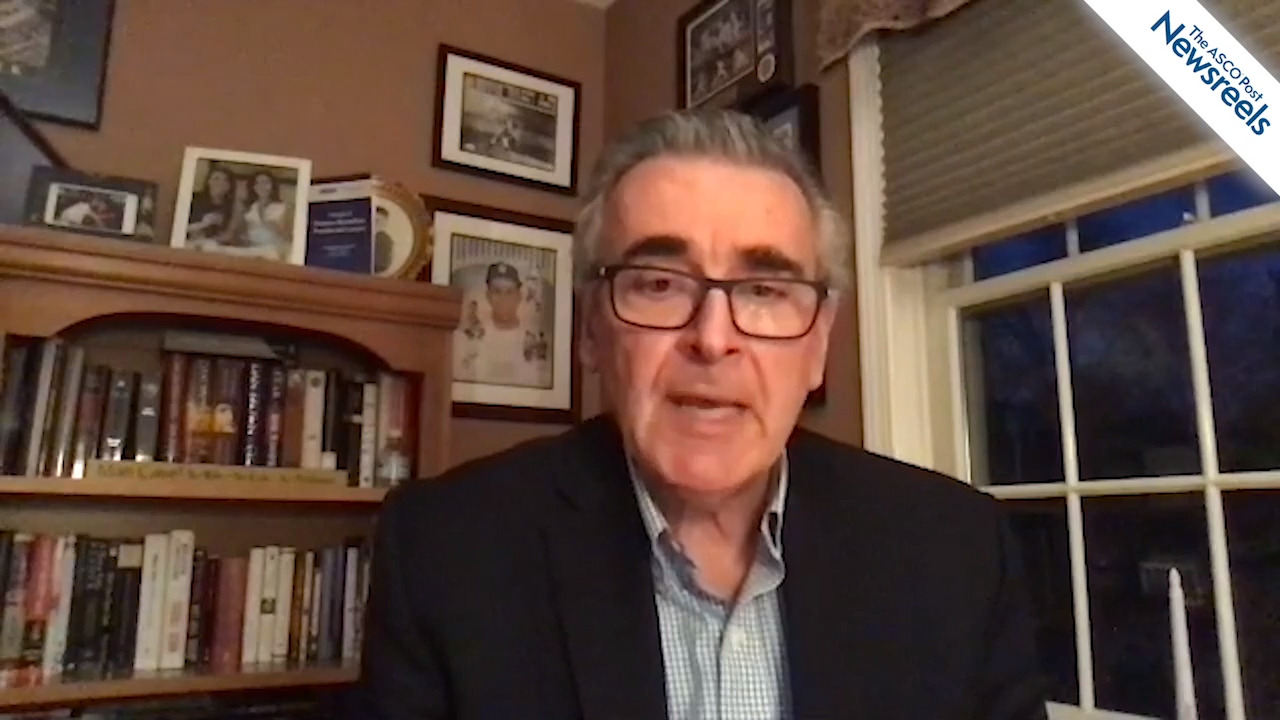Joyce V. Lee, PhD, on Triple-Negative Breast Cancer: MYC as a Predictor of Treatment Response
2020 San Antonio Breast Cancer Symposium
Joyce V. Lee, PhD, of the University of California, San Francisco, discusses data that suggest the MYC oncogene may indicate whether a patient with triple-negative breast cancer will respond to immunotherapy. Dr. Lee’s study is the first to describe MYC downregulation of MHC-I and to demonstrate translatable approaches that may overcome immune evasion (Abstract GS1-08).
The ASCO Post Staff
Patricia A. Ganz, MD, of the University of California, Los Angeles, discusses study findings that showed mindfulness meditation and survivorship education may effectively reduce depression and related symptoms such as fatigue and sleep disturbance, which pose serious threats to younger women’s health and well-being after being treated for cancer (Abstract GS2-10).
The ASCO Post Staff
Sibylle Loibl, MD, of the German Breast Group, discusses the first phase III results from the PENELOPE-B study of palbociclib combined with endocrine therapy in patients with hormone receptor–positive, HER2-negative primary breast cancer who are at high risk for relapse after neoadjuvant chemotherapy (Abstract GS1-02).
The ASCO Post Staff
Ann H. Partridge, MD, MPH, of Dana-Farber Cancer Institute, discusses results from the ALTERNATE trial on response to neoadjuvant chemotherapy in postmenopausal women with clinical stage II or III estrogen receptor–positive and HER2-negative breast cancer that is resistant to endocrine therapy. The findings highlight the need for more effective treatments in this high-risk population (Abstract GS4-05).
The ASCO Post Staff
Elizabeth A. Mittendorf, MD, PhD, of Brigham and Women’s Hospital, summarizes her plenary talk, which featured the uncertainties in treatment knowledge: excision of postchemotherapy calcifications; the best sentinel lymph node biopsy technique for patients with node-positive disease who convert to node-negative disease with neoadjuvant chemotherapy; whether immunohistochemistry should be routinely used for sentinel lymph node evaluation; and the role of radiation therapy in this patient population.
The ASCO Post Staff
Joseph A. Sparano, MD, of the Montefiore Medical Center and Albert Einstein College of Medicine, discusses the development and validation of a tool that integrates the 21-gene recurrence score and clinicopathologic features to individualize prognosis for distant recurrence and predict chemotherapy benefit in patients with early breast cancer with greater precision (Abstract GS4-10).
